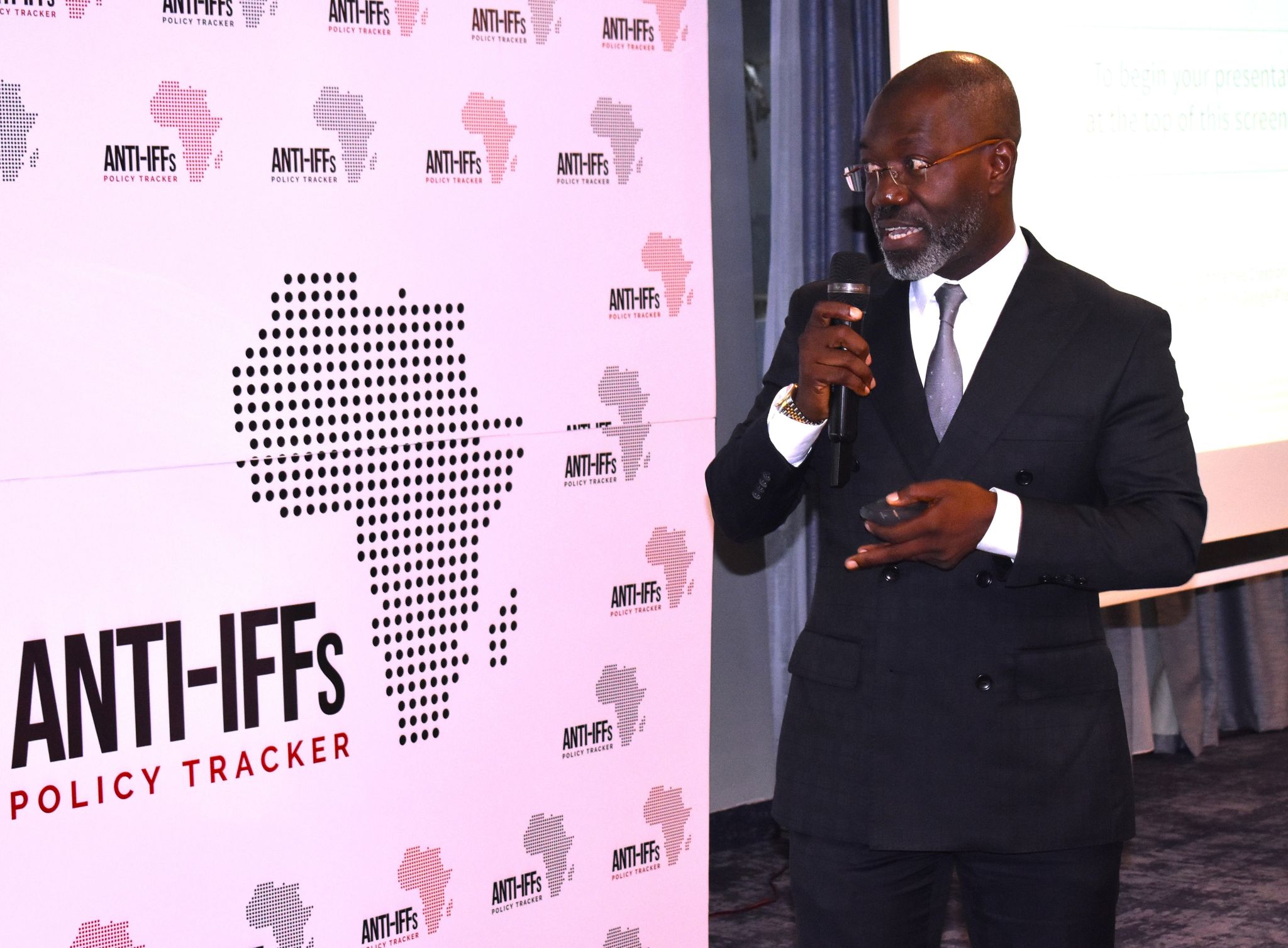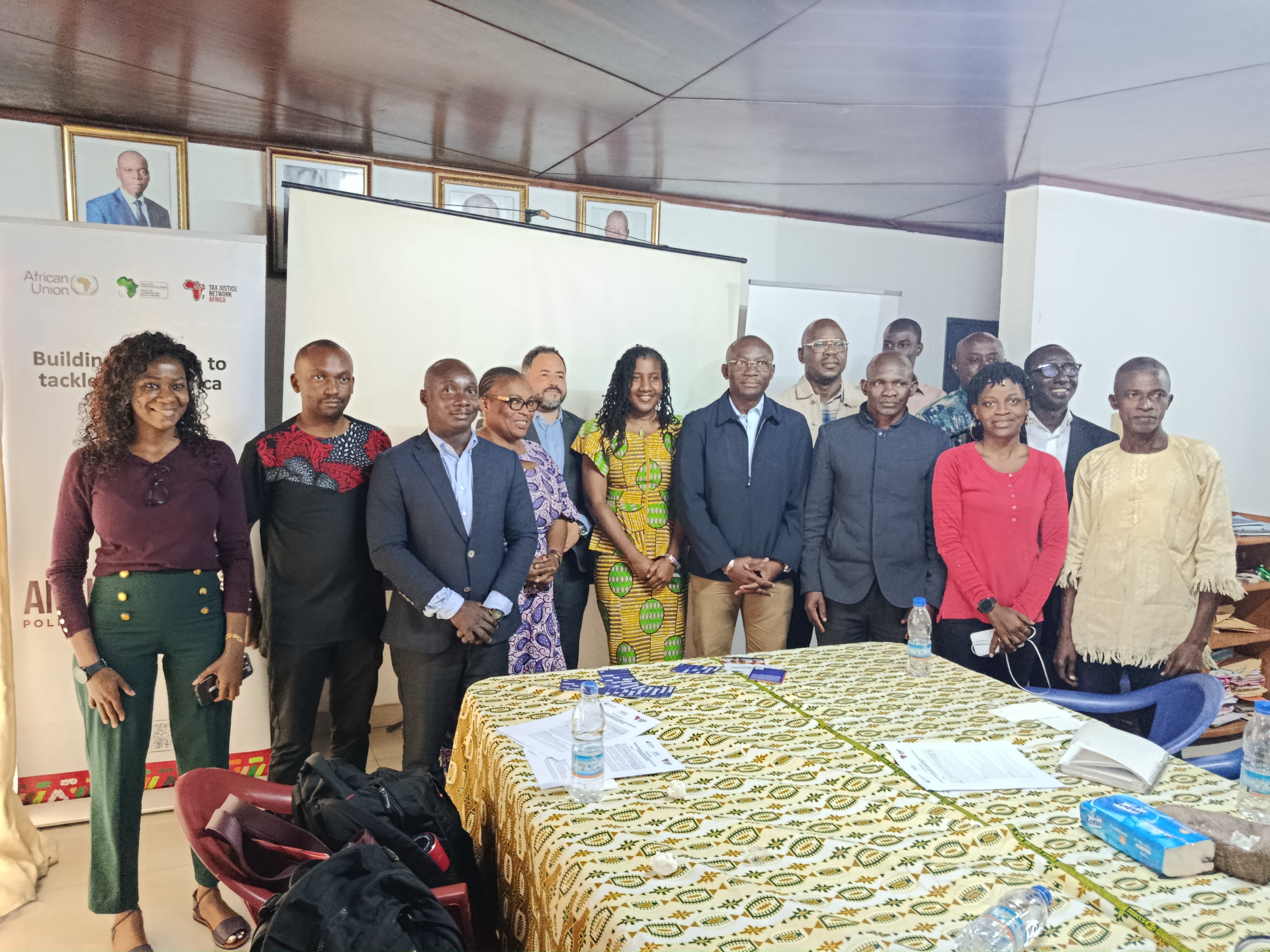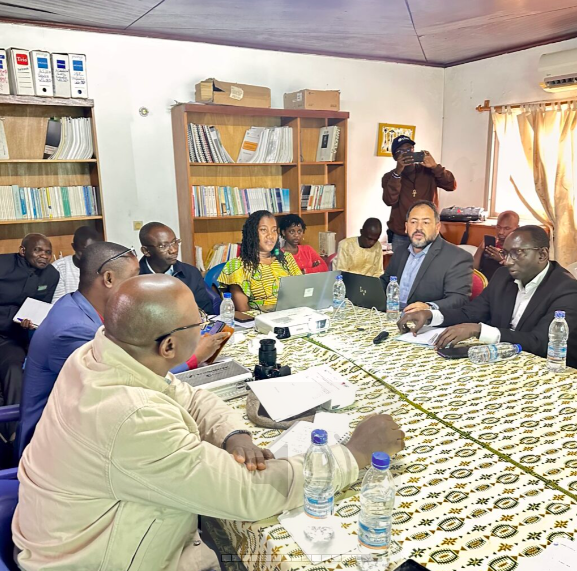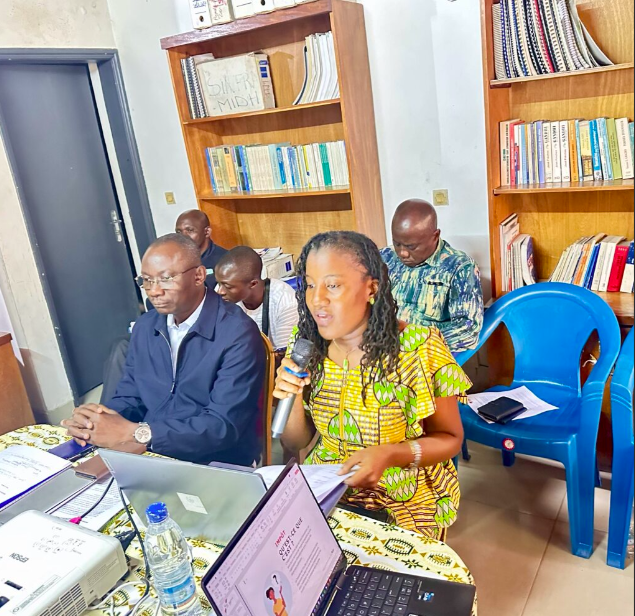On the Ground
Explore our work with partners, globally and locally, to tackle social and economic injustice using a human rights lens.

Advancing Tax Justice and the Fight Against Illicit Financial Flows (IFFs) in Côte d'Ivoire
Between 21 and 24 July, we collaborated with Tax Justice Network Africa (TJNA) on a 2-component mission in the Republic of Côte d'Ivoire.
The first component was the pilot of the Anti-IFFs Policy Tracker Tool. This tool is a comprehensive platform designed to monitor, assess, and strengthen tax-related anti-IFFs policies across African countries. This valuable resource, developed by Tax Justice Network Africa (TJNA) in collaboration with the African Tax Administration Forum (ATAF) and the African Union (AU), offers up-to-date information, best practices, and actionable insights for policymakers, driving meaningful change in the fight against IFFs.
The tool is structured around 4 clusters: Policy, Legislative & Regulatory Frameworks; Institutional Frameworks; Information & Data Frameworks; and Inter-agency Cooperation Frameworks. Each cluster has a series of indicators with their related scoring criteria. As it is a self-assessment tool, the country's authorities evaluate their existing laws, regulations, policies, institutions, and their cooperation in fighting IFFs against the tool criteria and give scores reflecting their strengths and weaknesses. So far, the tool has been piloted in Namibia, Uganda, and Ghana. Côte d'Ivoire was the first French-speaking country to receive the pilot mission.
During the three-day pilot workshop from 21 to 23 July, facilitators presented the tool and its methodology and added value to the Ivorian context. Then, breakout sessions were organised per cluster. Policymakers were assigned to the clusters relevant to their line of work, and each cluster was co-steered by two facilitators. Our Programme Officer-Africa, Aya Douabou, co-steered clusters 1 and 4 alongside Dr Lyla Latif and Prof. Nara Monkam, respectively. Her knowledge of the Ivorian laws and context contributed to keeping the debates grounded and localised.

At the end of the workshop, Ivorian policymakers presented each cluster's results and validated them in the plenary session. Then, TJNA presented the overall assessment outcome. The mission was successful as Ivorian policymakers took ownership of the results and displayed a strong commitment to ensuring that the areas of growth are addressed within their respective departments.

The second component of the mission was a meeting with Ivorian civil society organisations (CSOs) on tax justice and the financing of public services, which was held on 24 July at the Mouvement Ivoirien des Droits Humains (MIDH) offices.
This meeting follows the research and advocacy activities carried out by MIDH on the privatisation and commercialisation of education and health with our support in 2022 and 2024. One of the common findings of the two research pieces was the state's failure to fund public education and health services adequately.
This advocacy meeting was, therefore, an opportunity for Ivorian CSOs to learn and reflect on the concrete solutions they could offer the state to increase its domestic revenue and provide sufficient funding for education and health. The aim was to realise human rights, particularly through tax justice, a concept little known in Côte d'Ivoire.

The meeting gathered 20 participants, including CSOs and the media.
During the event, Amadou Dahou (MIDH) provided data on the state of financing of education and health in Côte d'Ivoire based on the reports MIDH developed with our support in 2022 and 2024. The data showed that the country is yet to reach the minimum thresholds of 4-6% of GDP & and 20% of budget allocation to education pursuant to the Icheon Declaration and 5-6% of GDP in line with the WHO recommendations & 15% of budget allocation to health in accordance with the Abuja Declaration. "Today, we are reigniting the discussion on the underfunding of education and health, as we believe that progressive taxation can address this issue. We join GI-ESCR and other partners to strengthen our capacity as CSOs on tax justice to influence policies and resource allocation to essential public services", he said.
Amine El Kamel (TJNA) presented the foundations of taxation. He highlighted the different types of tax, the 4R principles of tax justice, the principles underpinning equitable taxation, and he reminded that taxation is meant to finance public services, which are human rights. He also emphasised that taxation or economics more broadly should not be issues only discussed by "experts" but also and more by laypersons. "It is necessary to demystify taxation. It's a topic that concerns us all and affects us in our daily lives", he stated.

Our Programme Officer-Africa, Aya Douabou, demonstrated how tax justice can increase the country's revenue and enable it to finance and provide quality public services for the realisation of human rights. She mentioned some international human rights law provisions which highlight states' obligations to implement fair taxation and mobilise the maximum of their available resources to finance economic, social, and cultural rights embodied by public services. She indicated that curbing IFFs and scrapping wasteful tax incentives can help the country raise its tax-to-GDP ratio, which, in turn, can support over 380,000 out-of-school Ivorian children's access to education, according to ActionAid's Transforming Education Financing report. "Côte d'Ivoire loses 2.33 billion USD every year to IFFs according to 2019 AU data. Such money could have been invested in education and healthcare. Addressing IFFs and fighting wasteful tax incentives can enable the state to capture the revenue forgone yearly. For this to become a reality, transparency and accountability in resource management and allocation are necessary to ensure that people enjoy quality public services", she said.

Francis Kairu (TJNA) broke down tax injustice by showing how states prefer to adopt the easier yet unfair approach of overtaxing low- and middle-income earners in the formal sector instead of adequately taxing multinational enterprises and the informal sector. He also raised awareness of the UN Tax Convention, which is currently being championed by a group of African countries, and CSOs' role in this area. "CSOs can provide research. CSOs can represent the voices of the citizens. CSOs can provide the positions of countries. We invite Ivorian CSOs to participate in the UN Tax Convention process. They can advance what will work for Côte d'Ivoire", he said.




